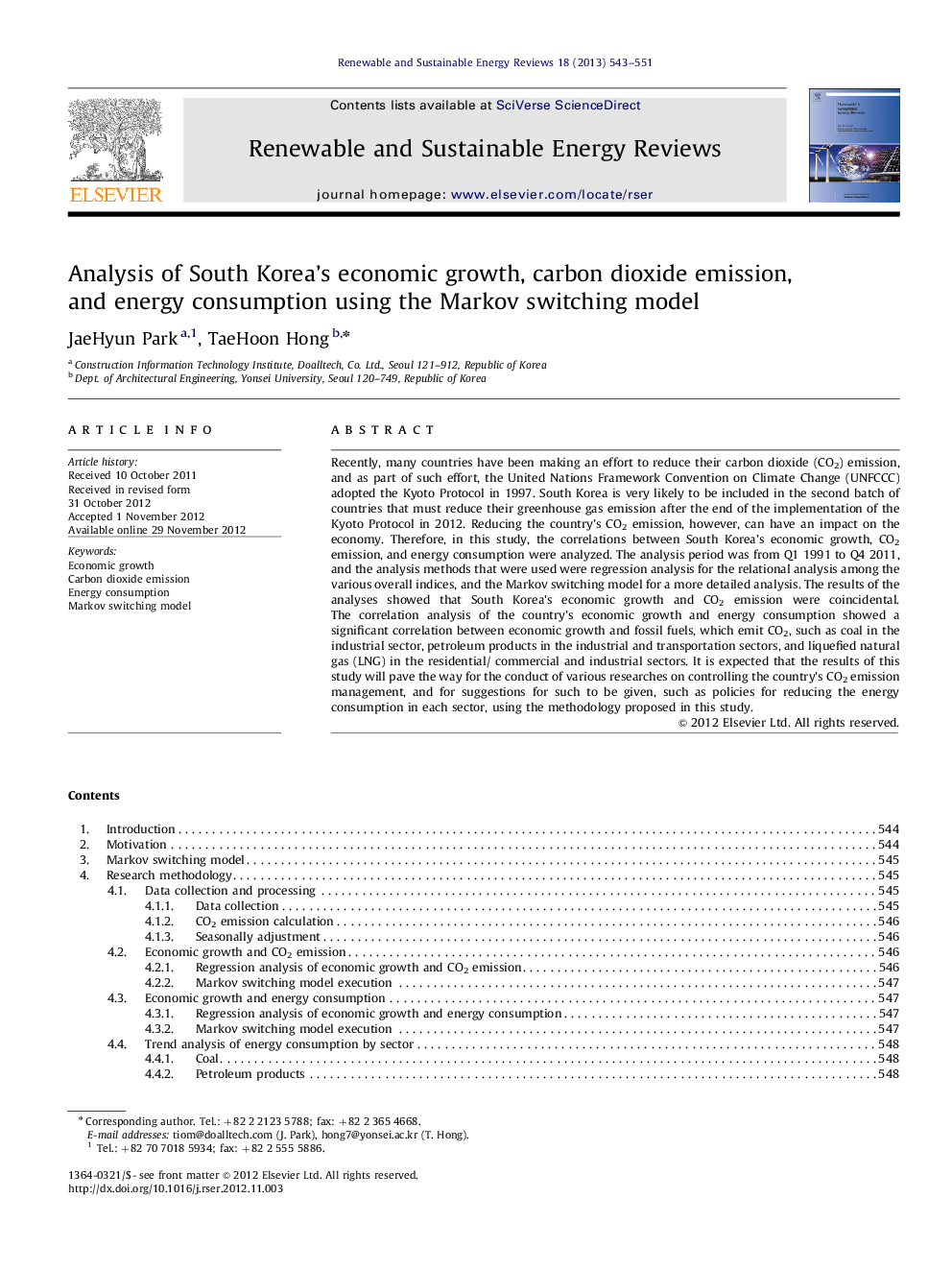| کد مقاله | کد نشریه | سال انتشار | مقاله انگلیسی | نسخه تمام متن |
|---|---|---|---|---|
| 1750726 | 1522367 | 2013 | 9 صفحه PDF | دانلود رایگان |

Recently, many countries have been making an effort to reduce their carbon dioxide (CO2) emission, and as part of such effort, the United Nations Framework Convention on Climate Change (UNFCCC) adopted the Kyoto Protocol in 1997. South Korea is very likely to be included in the second batch of countries that must reduce their greenhouse gas emission after the end of the implementation of the Kyoto Protocol in 2012. Reducing the country’s CO2 emission, however, can have an impact on the economy. Therefore, in this study, the correlations between South Korea’s economic growth, CO2 emission, and energy consumption were analyzed. The analysis period was from Q1 1991 to Q4 2011, and the analysis methods that were used were regression analysis for the relational analysis among the various overall indices, and the Markov switching model for a more detailed analysis. The results of the analyses showed that South Korea’s economic growth and CO2 emission were coincidental. The correlation analysis of the country’s economic growth and energy consumption showed a significant correlation between economic growth and fossil fuels, which emit CO2, such as coal in the industrial sector, petroleum products in the industrial and transportation sectors, and liquefied natural gas (LNG) in the residential/ commercial and industrial sectors. It is expected that the results of this study will pave the way for the conduct of various researches on controlling the country’s CO2 emission management, and for suggestions for such to be given, such as policies for reducing the energy consumption in each sector, using the methodology proposed in this study.
Journal: Renewable and Sustainable Energy Reviews - Volume 18, February 2013, Pages 543–551